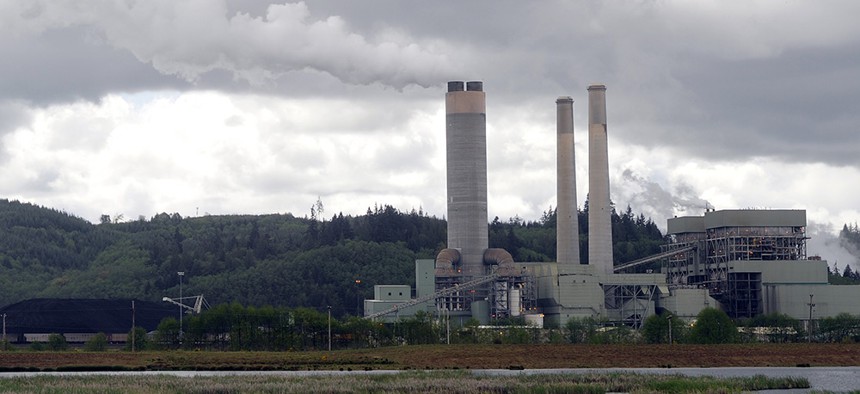
Dan Schreiber/Shutterstock.com
FutureGen is Done: Energy Ends Troubled Bush-Era Coal Electricity Project
A 12-year-old vision for a public-private partnership to create an advanced, climate-friendly coal-fired power plant has come to an apparent end.
The Energy Department is walking away from FutureGen, a public-private effort to create a power plant that traps and stores carbon emissions, which began but faltered under President George W. Bush and was revived by the Obama administration.
DOE is yanking funding for the project that was authorized to receive $1.1 billion in funding via the 2009 stimulus law, though the bulk was never spent.
Bush, who proposed FutureGen in 2003, envisioned a pioneering plant that would demonstrate sophisticated technology that uses coal cleanly on a commercial scale. Since then, other projects designed to trap power-plant emissions have begun moving ahead, though large-scale carbon capture remains far from widespread commercial deployment in the electricity sector.
"The U.S. Department of Energy has directed the suspension of FutureGen 2.0 project development activities. The DOE has concluded that there is insufficient time to complete the project before federal funding expires in September 2015," said Ken Humphreys, CEO of theFutureGen Alliance, the private-industry side of the initiative.
"In order to best protect taxpayer interests, the Department of Energy has initiated a structured closeout of federal support for the project that will help maximize the value of investments to date while minimizing ongoing risks and further costs," DOE spokesman Bill Gibbons said.
The Bush administration shelved FutureGen in 2008 as costs soared for the project, which was slated for construction in Illinois. The Obama administration later reimagined and revived FutureGen as a scaled-back project to retrofit an existing plant. (The Congressional Research Service has a history of the project and its costs through the years here.)
Of the $1.1 billion in stimulus cash, DOE has spent $116.5 million since 2010 for work on the power plant, and another $86 million was spent on the underground site envisioned for carbon storage and related infrastructure, the department said.
While the administration is not going forward with FutureGen, DOE said it's not a total loss.
"While this is an unfortunate outcome, the Department acquired valuable information and tangible benefits from the work accomplished to date. That progress will continue to benefit our broad clean coal portfolio, helping to further the deployment of carbon capture and storage projects and the development of next-generation technologies," Gibbons said.
DOE also noted several billion in federal funding committed for other "clean coal" efforts, vowing that it "remains committed to advancing the widespread deployment" of the technologies.
Sen. Dick Durbin of Illinois, the upper chamber's second-ranking Democrat, mourned the loss of the project in his state.
"The Secretary of Energy informed me that because the FutureGen Alliance was unable to secure the private financing necessary to meet the conditions of the project, the Department of Energy has been forced to end their participation. This is a huge disappointment for both Central Illinois and supporters of clean coal technology," Durbin said in a statement Tuesday evening.
Humphreys said that while the Alliance believes there are "solutions to address the impending deadline," the group "must comply with DOE's directive." The group has lost members over the years, including power giants Southern Co. and American Electric Power, but still includes some major coal producers.
(Image via Dan Schreiber/Shutterstock.com)







